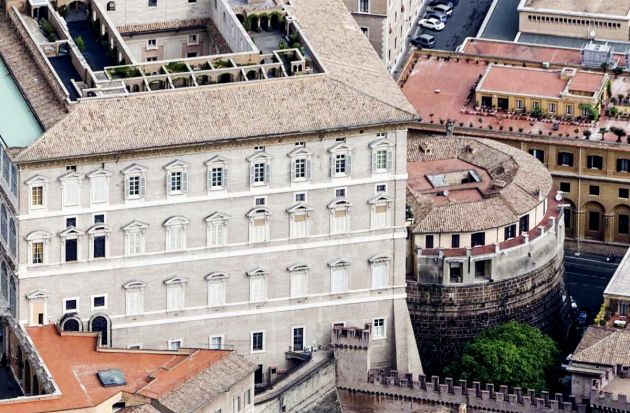Pope oversees bank reform meeting

ROME - Pope Francis has made it clear that he would personally oversee reform of the troubled Vatican bank by attending the first meeting of an investigative commission he set up last month to shed light on its murky financial dealings.
"Francis wanted to be present to encourage the work of the commission," the Vatican newspaper Osservatore Romano said Thursday, adding that the meeting had taken place a day earlier.
The bank's German chairman, Ernst von Freyberg, also attended along with prelate Monsignor Battista Ricca, who was appointed last month as an intermediary between the bank and the Vatican, the paper said.
The problems of the Institute for Works of Religion (IOR), as the bank is formally known, have multiplied even in the short time since the pope created the commission on June 26.
Two days after the investigative body was set up, a senior Catholic cleric with connections to the bank was arrested for plotting to help rich friends smuggle 20 million euros ($26 million) in cash into Italy from Switzerland.
A few days later, two of IOR's top managers resigned amid a money laundering investigation.
Though recently new scandals have emerged, the bank has been known for opaque and secretive dealings for decades, most notably 31 years ago when it was enmeshed in the bankruptcy of Banco Ambrosiano, then Italy's biggest private bank.
Banco Ambrosiano's chairman, Roberto Calvi, was found hanging from London's Blackfriars Bridge in June 1982. Though initially ruled a suicide by British investigators, an Italian court subsequently determined he had been murdered. No one has ever been convicted of the crime.
"Unfortunately there have been problems in the past, and even today there is no shortage of headaches," Brazilian Cardinal Odilo Pedro Scherer said on Thursday in an interview with il Messaggero newspaper.
"Angels do not always work in these institutions. Temptation sometimes leads them to wrongdoing."
The five-member commission, which reports directly to the pontiff, includes four prelates and a female Harvard law professor.
It has powers to obtain all the documentation and data it asks for, bypassing the Vatican's usual rules that oblige officials to respect the secrecy of their office. - Reuters